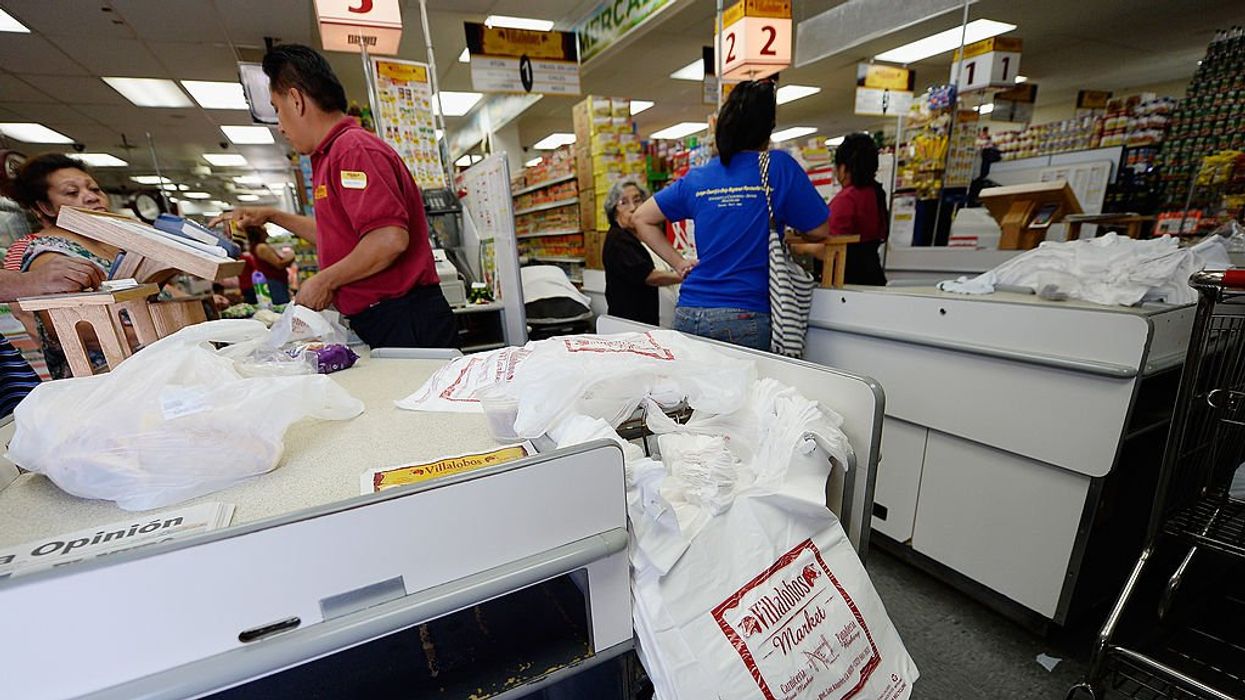
Photo by Kevork Djansezian/Getty Images

A market research company found that after New Jersey banned single-use plastic bags, the amount of plastic used in the state for bags went up significantly, as did the amount of pollution created in production. Only the retailer benefited from the increased sales of the alternative bags.
After New Jersey banned single-use plastic bags — that were often used in retail and grocery stores — total bag volumes declined by more than 60%. The 2022 ban pushed the state's number of the bags down to 894 million from around 1.5 billion. While the reduction in single-use bags was evident, it generated different problems, including the very same environmental issues such bans are typically meant to mitigate.
Not only did the ban cause an abrupt increase in theft of shopping baskets, but it also caused a nearly threefold increase in plastic consumption.
Market research group Freedonia conducted a study that analyzed the impact of the ban on retail practices, consumer behavior, and environmental aftermath. The study found that the alternative bags that have been used to replace the single-use bags consumed more plastic and created more emissions.
Six times more woven and non-woven polypropylene plastic was consumed to produce reusable bags that were sold as environmentally friendly alternatives. According to the study, non-woven polypropylene bags are not widely recycled in the United States, nor do they consist of any recycled materials.
While the environmental impact of the shift in materials was measured rather generically in terms of "greenhouse gas emissions," the emissions increased by 500% when compared to that of plastic bag production in 2015. The alternative non-woven polypropylene bag material consumes over 15 times more plastic in production and generates five times more emissions per bag.
At the same time, the shift toward delivery and pickup for groceries after COVID-19 restrictions increased the production of the alternative bags.
The shift to these alternatives has seemingly only benefitted retailers. The study claimed that grocery retailers in New Jersey can profit up to $200,000 per location off non-woven polypropylene bags, or $42 million across the state.
The research also noted that the alternative bags are reused only two to three times before being discarded, falling short of the frequency of usage that would justify the switch from the traditional single-use plastics.
Like Blaze News? Bypass the censors, sign up for our newsletters, and get stories like this direct to your inbox. Sign up here!
Andrew Chapados